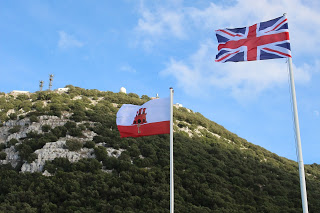“For freedom as well as honor one can and must venture
life"
life"
Don Quijote de la Mancha
Miguel de Cervantes
There has been no small stir
caused by the ruling issued by the Grand Chamber of the European Court of Law
Human Rights (ECtHR) in the Delfi AS v Estonia case 64569/09.
caused by the ruling issued by the Grand Chamber of the European Court of Law
Human Rights (ECtHR) in the Delfi AS v Estonia case 64569/09.
Once again we find ourselves faced with a conflict between the freedom of
expression and the right to honor that affects the media, essentially the digital ones and their power/obligation to control the
defamatory content.
expression and the right to honor that affects the media, essentially the digital ones and their power/obligation to control the
defamatory content.
The factual assumption of the matter starts from a situation in which
the owner of a web news portal, Delfi, is considered civil
responsible for the Estonian Courts, which consider that the right
to the honor of a person for defamatory comments contained in a
section enabled for this purpose by the owner of the portal in each news item.
the owner of a web news portal, Delfi, is considered civil
responsible for the Estonian Courts, which consider that the right
to the honor of a person for defamatory comments contained in a
section enabled for this purpose by the owner of the portal in each news item.
Delfi had measures to delete comments
on your portal (an automatic filter to block comments with certain
words and a detection and removal system for rapid removal of
defamatory messages) and therefore considers that the Estonian Judgment infringes
his right to freedom of expression, which is why he appeals to the
ECtHR.
on your portal (an automatic filter to block comments with certain
words and a detection and removal system for rapid removal of
defamatory messages) and therefore considers that the Estonian Judgment infringes
his right to freedom of expression, which is why he appeals to the
ECtHR.
In his decision At first instance, the ECtHR considers that the
attribution of responsibility to Delfi is a restriction on the freedom of
justified and proportionate expression,
hence it is understood that the Estonian ruling does not contravene the Charter of the
EU Fundamental Rights. Faced with this, Delfi appeals to the Grand Chamber
of the ECtHR.
attribution of responsibility to Delfi is a restriction on the freedom of
justified and proportionate expression,
hence it is understood that the Estonian ruling does not contravene the Charter of the
EU Fundamental Rights. Faced with this, Delfi appeals to the Grand Chamber
of the ECtHR.
The Grand Chamber ratifies the Sentence, using arguments
very similar to those of the first instance, although not identical. Mention
It deserves the special detail that, in contrast to the previous one, the
The ruling of the Grand Chamber has not been unanimous.
very similar to those of the first instance, although not identical. Mention
It deserves the special detail that, in contrast to the previous one, the
The ruling of the Grand Chamber has not been unanimous.
The legal basis of the resolution addresses, on the one hand,
the question of legality and on the other the question of freedom of expression
and its restrictions.
the question of legality and on the other the question of freedom of expression
and its restrictions.
By
legality it must be understood that “the norm must be accessible by the person
affected and be able to predict its effects/consequences” since these consequences are
those that shape the behavior of the subject, hence they must be predictable.
legality it must be understood that “the norm must be accessible by the person
affected and be able to predict its effects/consequences” since these consequences are
those that shape the behavior of the subject, hence they must be predictable.
Delphi
claimed that there was no national rule under which a
intermediary could be considered as publisher. He argued that the regulations
to be applied should be European legislation, which expressly prohibits the
Imposition of liability on intermediaries under the Directive
31/2000 on Electronic Commerce.
claimed that there was no national rule under which a
intermediary could be considered as publisher. He argued that the regulations
to be applied should be European legislation, which expressly prohibits the
Imposition of liability on intermediaries under the Directive
31/2000 on Electronic Commerce.
La
Grand Chamber, warning that the underlying problem lies essentially in the consideration
of Delfi as a mere intermediary,
take advantage to remember that among its functions is not that of
replace national courts in such a way that it must interpret and
apply regulations, but only determine whether the means adopted and their
effects are in accordance with the European Charter of Rights
Humans.
Grand Chamber, warning that the underlying problem lies essentially in the consideration
of Delfi as a mere intermediary,
take advantage to remember that among its functions is not that of
replace national courts in such a way that it must interpret and
apply regulations, but only determine whether the means adopted and their
effects are in accordance with the European Charter of Rights
Humans.
A
the effects of resolving this point, the ECtHR highlights that Delfi, being one of
the largest Estonian news portals, you should be familiar with
national laws and jurisprudence, taking into account which it is not unusual
conceive a possible responsibility for the facts already exposed.
the effects of resolving this point, the ECtHR highlights that Delfi, being one of
the largest Estonian news portals, you should be familiar with
national laws and jurisprudence, taking into account which it is not unusual
conceive a possible responsibility for the facts already exposed.
La
The Grand Chamber therefore considers that yes the legality requirement is met.
The Grand Chamber therefore considers that yes the legality requirement is met.
Regarding questions relating to the need in a
democratic society and freedom of expression as an essential element of
itself, the ECtHR attempts to put these principles in context, in order to determine
the possible limits that would be applicable.
democratic society and freedom of expression as an essential element of
itself, the ECtHR attempts to put these principles in context, in order to determine
the possible limits that would be applicable.
At this point the ECtHR highlights the commercial nature and
professional of Delfi, alluding to its commercial interest because there was the
greatest number of comments possible. From this it is inferred that Delfi held
certain degree of control, which is why it cannot be considered a mere
intermediary.
professional of Delfi, alluding to its commercial interest because there was the
greatest number of comments possible. From this it is inferred that Delfi held
certain degree of control, which is why it cannot be considered a mere
intermediary.
The ECtHR indicates that although Delfi did have security measures
filtering of comments, these proved to be insufficient both on a
prior (detection of inappropriate words) and posterior (possibility of
report as inappropriate content) as it took 6 weeks to process
its effective withdrawal. If said delay has not occurred, the Court
considers that there would be no conflict. It is interesting to note that the Court qualifies
the controversial comments as manifestly illicit, calling them
hate speech.
filtering of comments, these proved to be insufficient both on a
prior (detection of inappropriate words) and posterior (possibility of
report as inappropriate content) as it took 6 weeks to process
its effective withdrawal. If said delay has not occurred, the Court
considers that there would be no conflict. It is interesting to note that the Court qualifies
the controversial comments as manifestly illicit, calling them
hate speech.
Based on these arguments, the Grand Chamber of the ECtHR
considers that Estonia's move to hold Delfi responsible for the
third party comments is not a disproportionate restriction on the exercise of
freedom of expression.
considers that Estonia's move to hold Delfi responsible for the
third party comments is not a disproportionate restriction on the exercise of
freedom of expression.
Although the above are preponderant criteria of the Great
Chamber, Judges Sajó and Tsotsoria issued a dissenting opinion to the
respect.
Chamber, Judges Sajó and Tsotsoria issued a dissenting opinion to the
respect.
The aforementioned judges understand that the consequence of the sentence
is that all comments must be monitored from the moment they
are published. They also understand that the portals are encouraged to
deactivate the option to publish comments regarding news.
is that all comments must be monitored from the moment they
are published. They also understand that the portals are encouraged to
deactivate the option to publish comments regarding news.
These facts will lead, according to the criteria of
said judges, to a collateral censorship
which is still a censorship operated by the government, although not directly,
yes by putting pressure on private operators by creating a
scenario where if you want to avoid responsibility the consequence
Its self-censorship is inevitable.
said judges, to a collateral censorship
which is still a censorship operated by the government, although not directly,
yes by putting pressure on private operators by creating a
scenario where if you want to avoid responsibility the consequence
Its self-censorship is inevitable.
They understand the above to be an attack
against freedom of expression and a government tool to reach
those anonymous Internet users whom you would otherwise not have
opportunity to punish.
against freedom of expression and a government tool to reach
those anonymous Internet users whom you would otherwise not have
opportunity to punish.
The Estonian Court sentenced Delfi to proceed with the withdrawal of
the comments as well as the payment of a fine of 320 euros. Given that
This amount is ridiculous for a professional entity as well as
Delfi was not forced to change its business model, the consequences were
minimal.
the comments as well as the payment of a fine of 320 euros. Given that
This amount is ridiculous for a professional entity as well as
Delfi was not forced to change its business model, the consequences were
minimal.
The Grand Chamber strives to emphasize that this resolution is not
extrapolated to other cases in a generic way, since the solution adopted
is only valid in cases of manifestly illegal comments made in the
context of a portal managed professionally and with a commercial spirit. Of
So let me clarify that this matter does not refer to other internet forums where
spread comments from third parties, where Internet users can express
freely their ideas on any topic, without the forum administrator
contribute anything to the debate to direct it (for example, a discussion forum, or a
electronic bulletin board); or one
social media platform where the platform provider does not offer any
content and where the content provider may be an individual who operates
another website or another blog as a hobby.
extrapolated to other cases in a generic way, since the solution adopted
is only valid in cases of manifestly illegal comments made in the
context of a portal managed professionally and with a commercial spirit. Of
So let me clarify that this matter does not refer to other internet forums where
spread comments from third parties, where Internet users can express
freely their ideas on any topic, without the forum administrator
contribute anything to the debate to direct it (for example, a discussion forum, or a
electronic bulletin board); or one
social media platform where the platform provider does not offer any
content and where the content provider may be an individual who operates
another website or another blog as a hobby.
As can be seen, The sentence reflects the
current debate on the exercise of freedom of expression in the media
digital and social networks. Although said freedom of expression is one of the
principles of all societies
democratic, we must not forget that honor, privacy and image are also
They are constitutionally protected rights.
current debate on the exercise of freedom of expression in the media
digital and social networks. Although said freedom of expression is one of the
principles of all societies
democratic, we must not forget that honor, privacy and image are also
They are constitutionally protected rights.
Comments on the news are a
new way of expressing ideas and have shown that they serve to
enrich and democratize online debates, even contributing facts
or aspects not included in the original news so they undoubtedly contribute
to promote truthful and balanced information. In Europe it is estimated that every
About 5.000 billion comments are created every year.
new way of expressing ideas and have shown that they serve to
enrich and democratize online debates, even contributing facts
or aspects not included in the original news so they undoubtedly contribute
to promote truthful and balanced information. In Europe it is estimated that every
About 5.000 billion comments are created every year.
However, it is enough to read many
digital media to see how any news can provoke a series of
comments issued anonymously in which we find not an opinion
but, many times, just a torrent of insults.
digital media to see how any news can provoke a series of
comments issued anonymously in which we find not an opinion
but, many times, just a torrent of insults.
Miguel Hernández said that "For the
freedom I bleed, I fight, I live…”. But also that “For freedom I rid myself with bullets of those who have wallowed in their
statue through the mud. The poet speaks in another time and of other
circumstances, but that effort of many invites us to think if, in
our days, those who only insult and rely so much on freedom of expression
are the ones dragging her through the mud and if boundary setting can
help maintain and enhance true freedom of expression.
freedom I bleed, I fight, I live…”. But also that “For freedom I rid myself with bullets of those who have wallowed in their
statue through the mud. The poet speaks in another time and of other
circumstances, but that effort of many invites us to think if, in
our days, those who only insult and rely so much on freedom of expression
are the ones dragging her through the mud and if boundary setting can
help maintain and enhance true freedom of expression.
Visit our web page: http://www.elzaburu.com/






